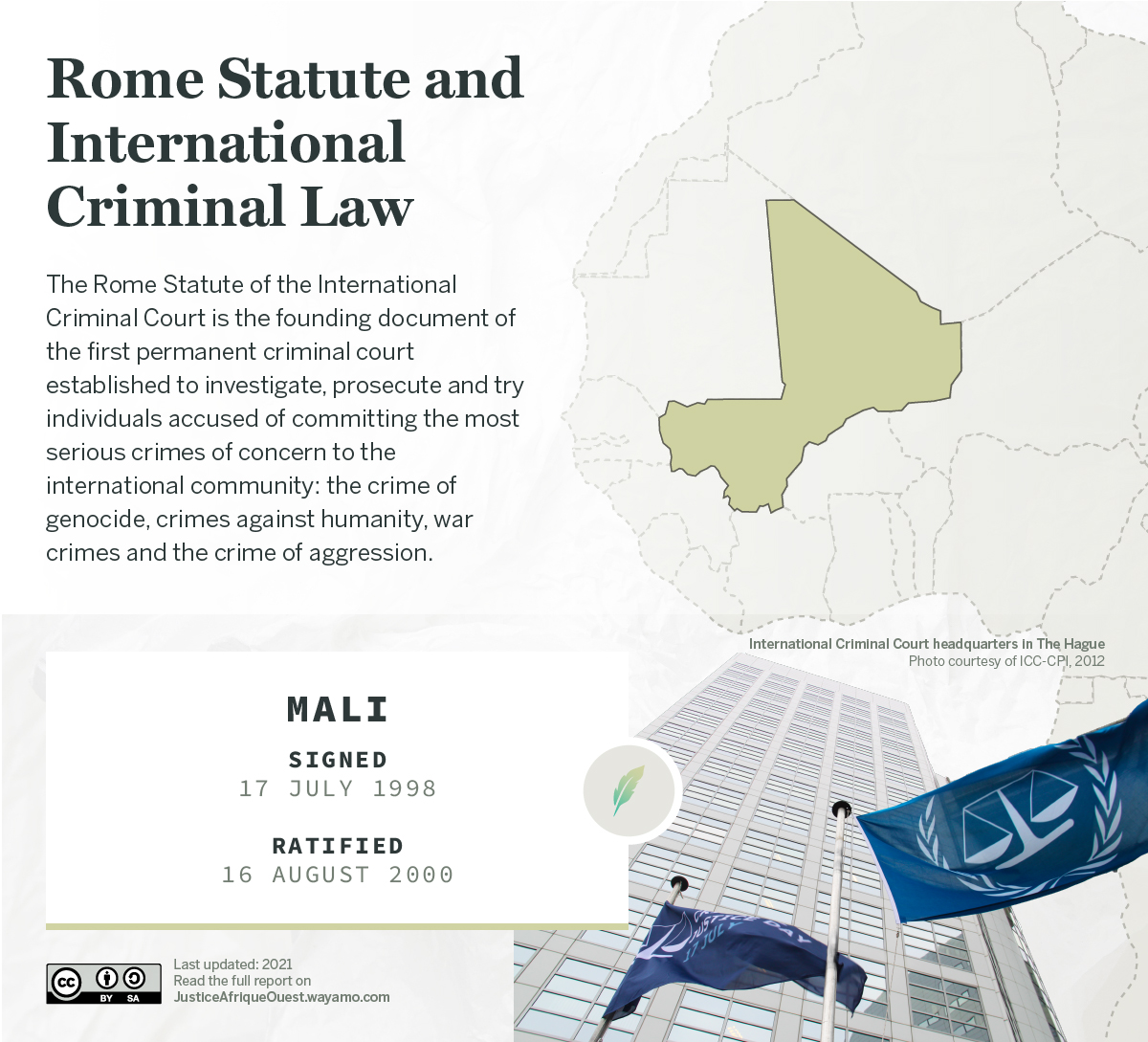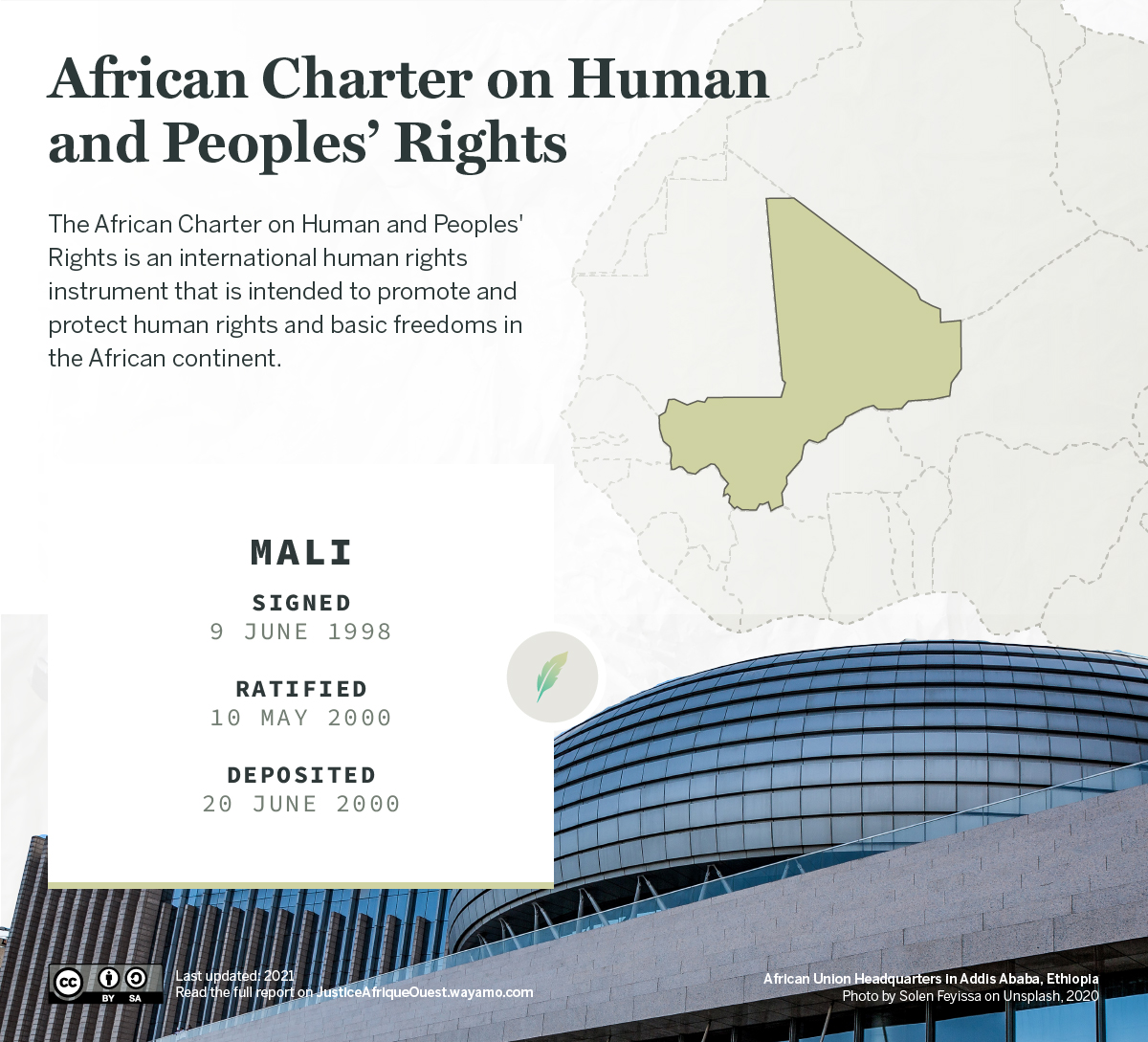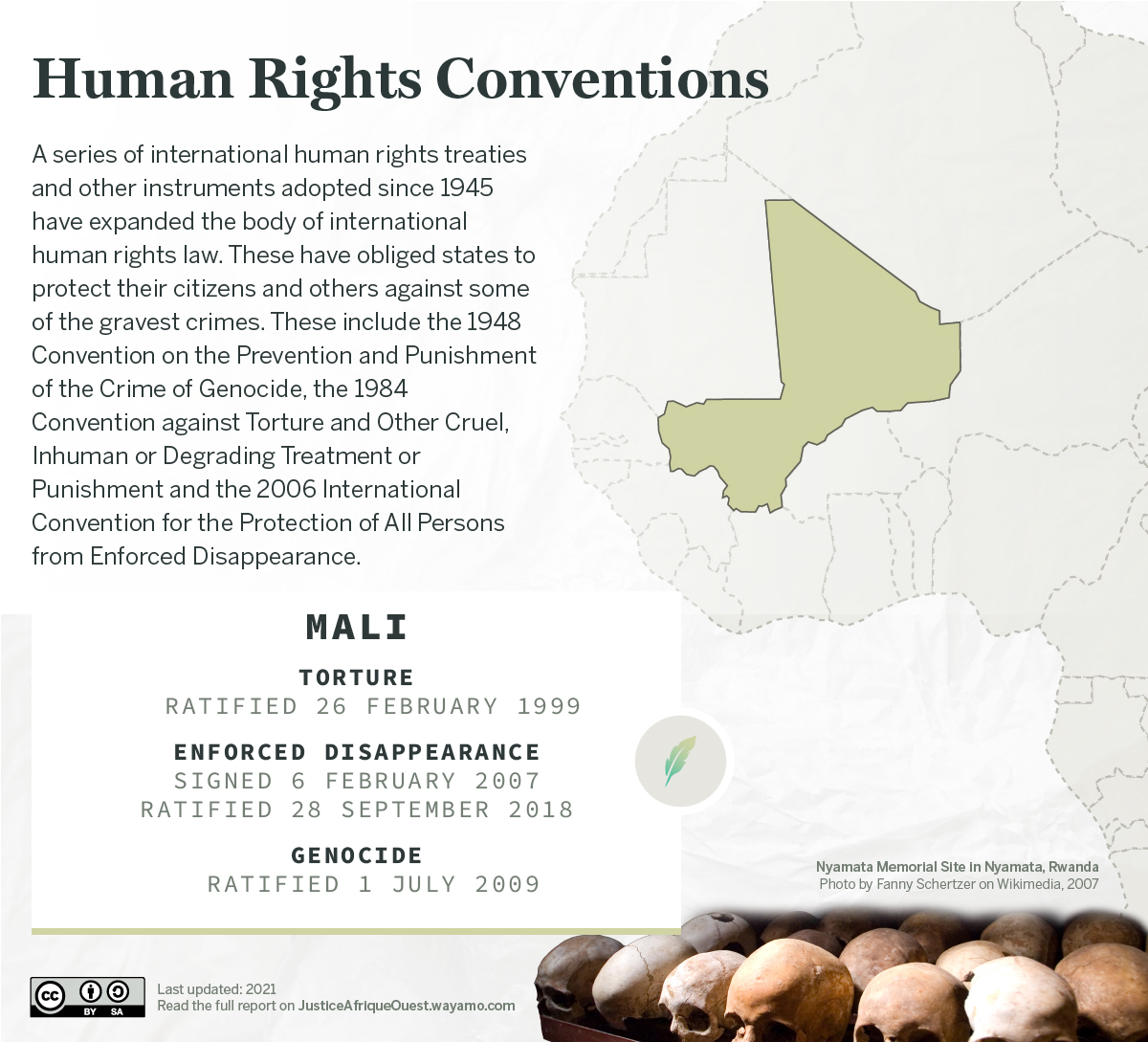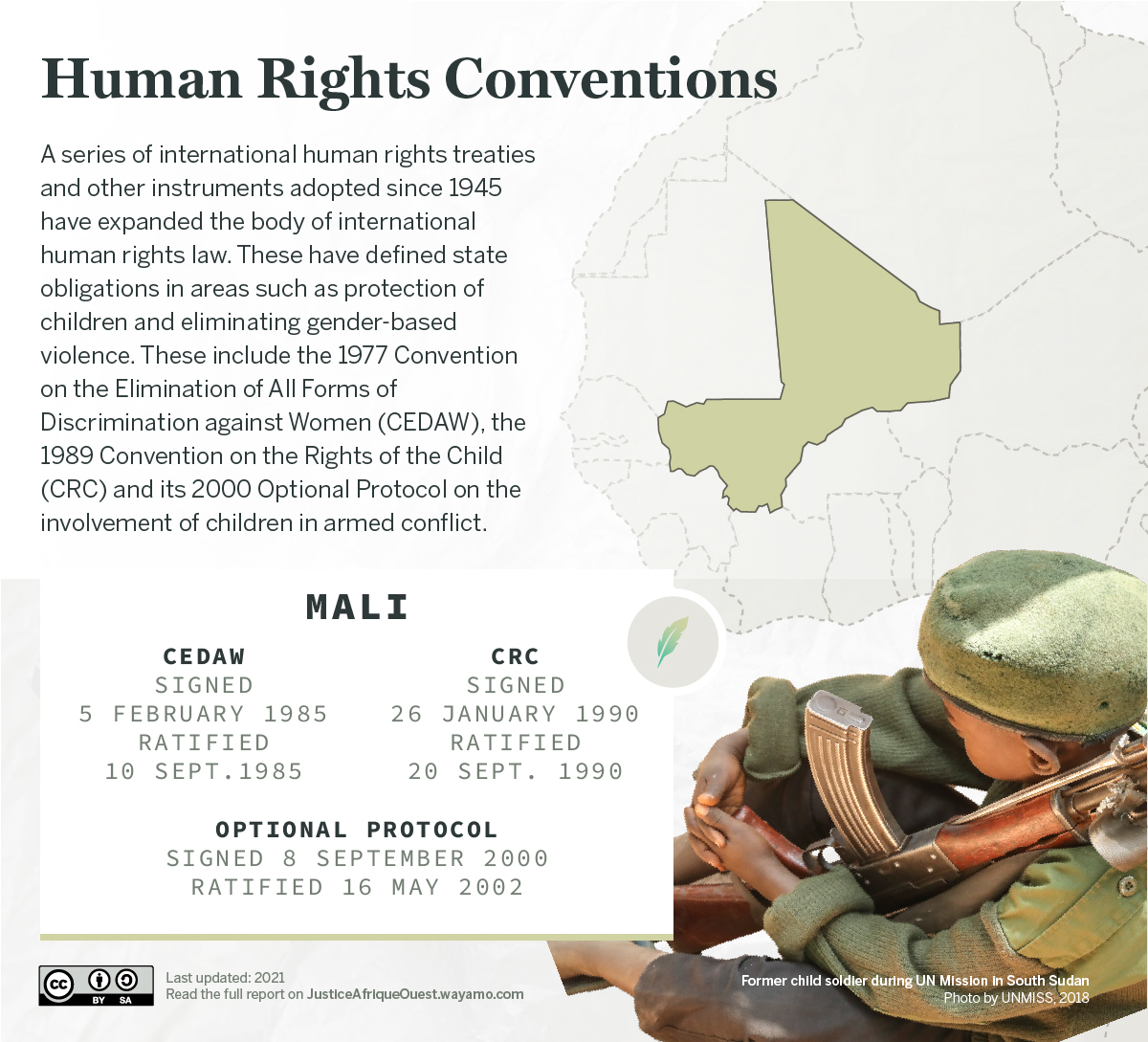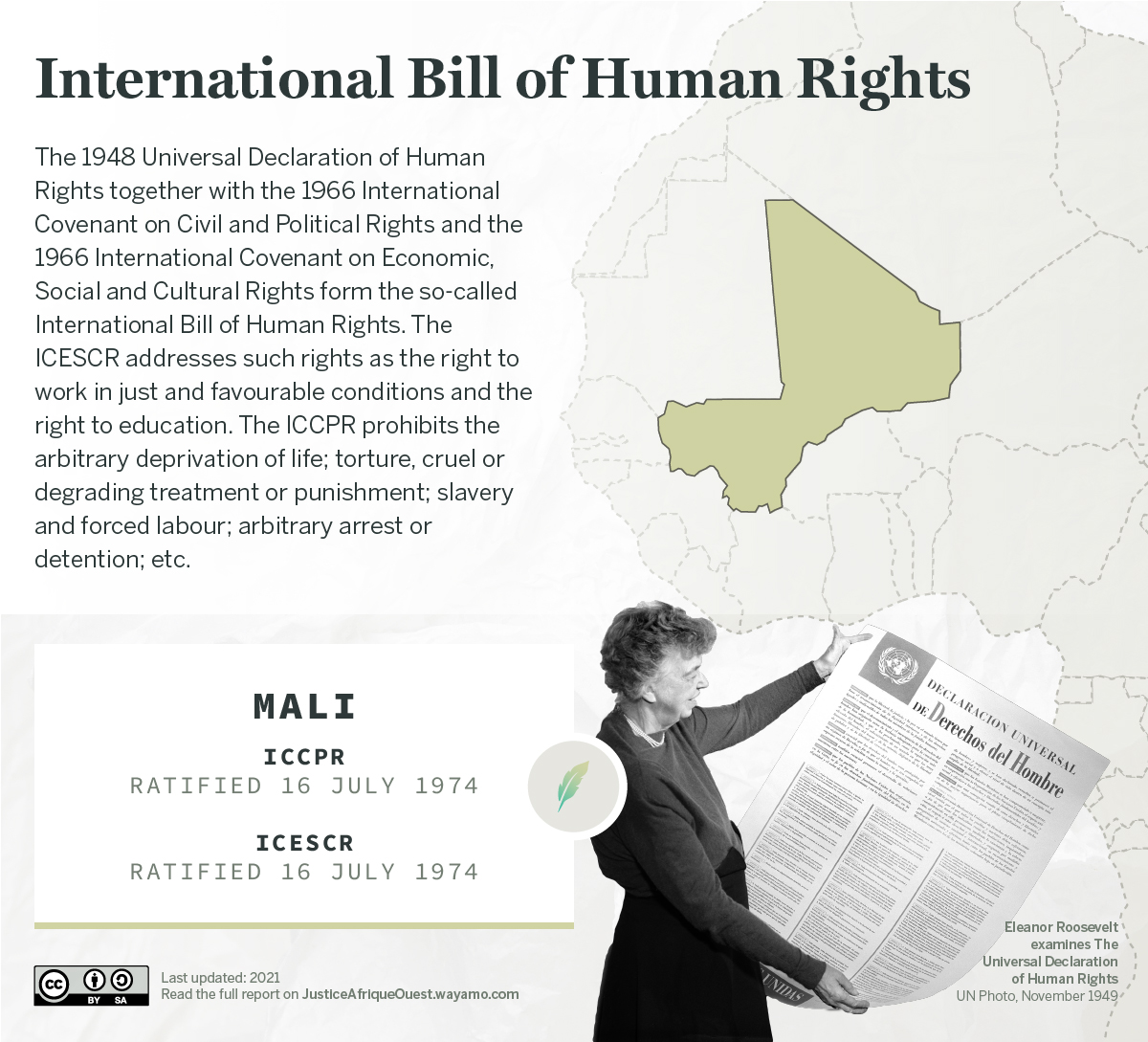Fighting breaks out in Bamako
Pro-junta forces in Mali have take control of the main anti-junta military base after two days of fighting in the capital, Bamako. Members of the "Red Berets" (presidential guard unit) are abducted by forces loyal to Sanogo.
ECOWAS threatens to reimpose sanctions
President beaten up by protesters
Interim President Dioncounda Traore was taken to hospital with a head wound after being attacked by pro-military demonstrators on 14 May 2012. Prime Minister Cheick Modibo Diarra resigns after his army arrest by soldiers on 10 December 2012.
April 2012 – January 2013
Occupation of Timbuktu and other cities in the north
In the months that follow, MNLA loses control of most of the territory to its former allies, the Islamic groups Al-Qaïda au Maghreb islamique (AQIM), Ansar Eddine and Mouvement pour l'unicité et le jihad en Afrique de l'Ouest (MUJAO). AQIM and Ansar Eddine occupy Timbuktu and MUJAO occupies Gao. Under their rule, widespread human rights violations are committed including extrajudicial executions, torture and systematic rape and forced marriages, particularly targeting children.
French forces recapture the north
French forces and their allies expel AQIM and Ansar Eddine from Timbuktu in January and recapture the north by May during Operation Serval.
Public Prosecutor opens the case against Iyad Ag Ghali and 29 others
Mali’s Public Prosecutor opens a case concerning the crimes committed during the occupation of the north in 2012-2013, including a procedure against Iyad Ag Ghali, the leader of the terrorist movement Ansar Dine, and 29 others. The case includes the former president of the Islamic court in Timbuktu, Alfousseyni Ag aka “Houka Houka”.
MINUSMA established by UN
In April, the United Nations United Nations Multidimensional Integrated Stabilization Mission in Mali (MINUSMA) stabilisation mission is established to support the transition to peace.
- Document: UN Security Council decision establishing MINUSMA
Mali establishes Specialised Judicial Unit for the Fight Against Terrorism
Malian authorities pass a law amending the Code of Criminal Procedures and creating a Specialised Judicial Unit for the Fight Against Terrorism and Transnational Crimes within the Tribunal de Grande Instance of Commune IV of the District of Bamako. The Specialised Judicial Unit’s jurisdiction, defined in Article 609-1 of the Law of 2013, covers all of Mali. It can investigate offences related to terrorism, financing of terrorism, money laundering, drug trafficking, weapons and ammunition, and human trafficking and related practices when these crimes are transnational in nature.
- Document: 2013 Law establishing Specialised Judicial Unit
- Document: law no. 08-025 of July 23, 2008 on the suppression of terrorism allows for the prosecution and conviction of terrorist acts
Ibrahim Boubacar Keïta elected president
The first post-coup presidential elections are held on 28 July 2013, with a second round run-off held on 11 August.
Release of Ag Alfousseyni “Houka Houka”, Ben Gouzzoi and others
High ranking members of armed groups are released from detention in effort to advance the peace process and to secure the release of French hostages.
FIDH & AMDH File Sexual Violence Case
The International Federation for Human Rights (FIDH) and the Association Malienne des Droits de l'Homme (AMDH) file a complaint for crimes against humanity and war crimes on behalf of 80 women and girl victims of rape and other forms of sexual violence committed during the occupation of northern Mali in 2012 and 2013. Despite the goodwill of the investigative judge, the investigation is stalled because of the lack of cooperation from the authorities and insecurity in the region where investigations would be conducted.
Specialised Judicial Unit assumes its duties
Government and separatist groups sign “Agreement for Peace and Reconciliation in Mali Resulting from the Algiers Process”
Arrest warrants against senior officers in the case of Public Prosecutor v. Iyad Ag Ghali and 29 others are lifted in May and June 2015. At least 50 alleged perpetrators of crimes against humanity or war crimes who had been arrested are released. Despite these actions, the peace process also establishes a framework for peace and justice, including trials for international crimes and a truth commission.
Timbuktu occupation victims file complaint
FIDH files a complaint on behalf of 33 victims of international crimes committed during the occupation of Timbuktu and its region by armed groups in 2012 and 2013. This complaint concerns 15 alleged perpetrators of crimes against humanity and war crimes. The proceedings are suspended due to the lack of political and judicial will.
General Amadou Sanogo & 17 co-defendants tried for abduction and killing of 21 Red Berets
The first domestic trial for international crimes opens. The Indictments Chamber of the Bamako Court of Appeals indicts General Amadou Haya Sanogo and 17 others for the murder of 21 Red Berets during an attempted counter-coup. The Chamber refers them to the Assize Court to be tried for kidnapping and murder, where the Court orders a new medical examination of bodies found in the Diago mass grave, because the first one had not been conducted in accordance with the procedures provided for under Malian law. This delays the trial.
Police chief convicted on terrorism charges
Aliou Mahamar Touré, the chief of the Islamic police during the occupation of Goa, is convicted on terrorism charges for crimes against the State. He was not charged with war crimes or torture, despite being accused of multiple acts of mutilation.
The Special Unit on Terrorism opens 162 cases
Around 120 counter-terrorism judicial proceedings begin in 2017, but these result in almost no trials. This comes after around a dozen sentences were handed down by the Mopti Criminal Court in April 2016 in the absence of the accused. The most important cases are still under investigation.
A law is passed extending the jurisdiction of the Specialized Unit to include war crimes, genocide and crimes against humanity
Trials related to inter-communal Attacks on Koro, Bankass and Baniagara
Suspects accused of leading 2019 attacks on Koro, Bankass and Bandiagara go to trial at the Mopti Court d’assises. Of the 60 accused, 44 are convicted however only two are convicted of murder.
Specialised Judicial Unit investigates Ogossagou intercommunal massacre
Investigation into the March 23 massacre of 160 Fulani herders in Ogossagou, more than half of the children, leads to ten arrests.
Specialised Judicial Unit investigates Sobane Da intercommunal massacre
The prosecutor for the Specialised Judicial Unit opens an investigation into the massacre of at least 95 Dogon in Sobane Da on June 2019. As of October 2019, nine suspects are placed in pretrial detention.
Investigation into inter-communal Attacks Koulogon
The High Court of Mopti opens of an investigation into the January 1 massacre of 37 people in Koulogon. Twelve are suspected in connection with the killings, and eight of them later released.
Four Dogon men convicted of inter-communal attacks on Bankass Cerle
General Sanogo is granted provisional release pending trial
New legislation drafted on witness protection
In an effort to address gaps in witness and victim protection, two draft bills on the protection witnesses were prepared by Malian civil society organizations and proposed to the authorities. One of these bills particularly concerns gender-based violence, including protections for victims of sexual violence. A third bill concerning protection of "human rights defenders" was initiated by the Ministry of Justice and was before the National Assembly in late 2020.
President Keita resigns after coup d’Etat
Following escalating violence following parliamentary elections in March and April 2020 and months of protests, soldiers detained several government officials including the President Ibrahim Boubacar Keïta who resigned and dissolved the government.
Bah Ndaw becomes President of Mali
Seventy-year-old Colonel Bah Ndaw, a former Minister of Defence under Ibrahim Keita, assumes the presidency until interim elections scheduled in 18 months’ time. Colonel Assimi Goïta, the leader of National Committee for the Salvation of the People - Le Comité national pour le salut du peuple (CNSP) which staged the August coup, is appointed vice president.
Assimi Goïta leads coup against Bah Ndaw
The Malian Army, led by Vice President Assimi Goïta, arrests President Bah Ndaw who resigns from custody. Goïta becomes interim President on 7 June 2021. It is the country's third coup d'état in ten years.


